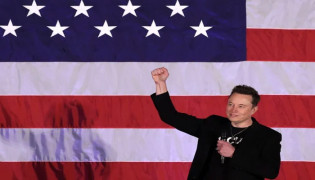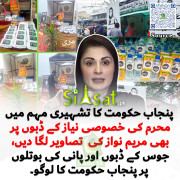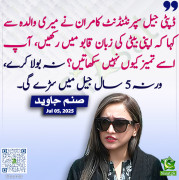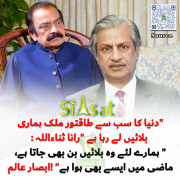biomat
Minister (2k+ posts)
May 29, 2012
Introduction May 28, 2012
The BBC has been caught out once again, this time using a photo taken in Iraq in 2003 to illustrate a story about the massacre in Houla on Sunday.
 Only after it emerged that the photo was taken in Iraq in 2003 did the BBC try to track down the original source of the image. Had they been so scrupulous from the outset the photo would not have been posted anyway.
Only after it emerged that the photo was taken in Iraq in 2003 did the BBC try to track down the original source of the image. Had they been so scrupulous from the outset the photo would not have been posted anyway.
Thereafter the British Broadcast Corporations spokesman went in to damage control mode as he tried to limit criticism. Trouble is he wasnt very convincing.
Claiming that the photo was posted along with a disclaimer, as the spokesman did, was pretty deceptive in itself. Given that if the Corporation had used the photo knowing it originated from Iraq in 2003 they would have posted the disclaimer anyway, if only to cover their backs.
The fact that the BBC originally claimed the photo was provided by an activist raises still more question. For many Syrian activists are known to be working in close cahoots with Western intelligence.
Yet the BBC accepts photos from these unnamed activists without serious scrutiny.
Whats more, once the photo was removed the BBC omitted to mention in later editions of the story that it had been removed and that it was originally taken in Iraq in 2003.
No apology, no explanation. Nothing. Because the BBC is doing what it does best, dissembling. To add insult to injury viewers are legally obligated to pay for this in the form of an annual licence fee.
In other words the BBC has become a sort of corporate confidence trickster. Winning its viewers trust, then feeding them carefully contrived untruths before demanding money in exchange.
BBC News uses Iraq photo to illustrate Syrian massacre
Hannah Furness Telegraph.co.uk May 28, 2012
Photographer Marco di Lauro said he nearly fell off his chair when he saw the image being used, and said he was astonished at the failure of the corporation to check their sources.
The picture, which was actually taken on March 27, 2003, shows a young Iraqi child jumping over dozens of white body bags containing skeletons found in a desert south of Baghdad.
It was posted on the BBC news website today under the heading Syria massacre in Houla condemned as outrage grows.
The caption states the photograph was provided by an activist and cannot be independently verified, but says it is believed to show the bodies of children in Houla awaiting burial.
A BBC spokesman said the image has now been taken down.
Mr di Lauro, who works for Getty Images picture agency and has been published by newspapers across the US and Europe, said: I went home at 3am and I opened the BBC page which had a front page story about what happened in Syria and I almost felt off from my chair.
One of my pictures from Iraq was used by the BBC web site as a front page illustration claiming that those were the bodies of yesterdays massacre in Syria and that the picture was sent by an activist.
Instead the picture was taken by me and its on my web site, on the feature section regarding a story I did In Iraq during the war called Iraq, the aftermath of Saddam.
What I am really astonished by is that a news organization like the BBC doesnt check the sources and its willing to publish any picture sent it by anyone: activist, citizen journalist or whatever. Thats all.
He added he was less concerned about an apology or the use of image without consent, adding: What is amazing its that a news organization has a picture proving a massacre that happened yesterday in Syria and instead its a picture that was taken in 2003 of a totally different massacre.
Someone is using someone elses picture for propaganda on purpose.
A spokesman for the BBC said: We were aware of this image being widely circulated on the internet in the early hours of this morning following the most recent atrocities in Syria.
We used it with a clear disclaimer saying it could not be independently verified.
Efforts were made overnight to track down the original source of the image and when it was established the picture was inaccurate we removed it immediately.
Source
Introduction May 28, 2012
The BBC has been caught out once again, this time using a photo taken in Iraq in 2003 to illustrate a story about the massacre in Houla on Sunday.
 Only after it emerged that the photo was taken in Iraq in 2003 did the BBC try to track down the original source of the image. Had they been so scrupulous from the outset the photo would not have been posted anyway.
Only after it emerged that the photo was taken in Iraq in 2003 did the BBC try to track down the original source of the image. Had they been so scrupulous from the outset the photo would not have been posted anyway.Thereafter the British Broadcast Corporations spokesman went in to damage control mode as he tried to limit criticism. Trouble is he wasnt very convincing.
Claiming that the photo was posted along with a disclaimer, as the spokesman did, was pretty deceptive in itself. Given that if the Corporation had used the photo knowing it originated from Iraq in 2003 they would have posted the disclaimer anyway, if only to cover their backs.
The fact that the BBC originally claimed the photo was provided by an activist raises still more question. For many Syrian activists are known to be working in close cahoots with Western intelligence.
Yet the BBC accepts photos from these unnamed activists without serious scrutiny.
Whats more, once the photo was removed the BBC omitted to mention in later editions of the story that it had been removed and that it was originally taken in Iraq in 2003.
No apology, no explanation. Nothing. Because the BBC is doing what it does best, dissembling. To add insult to injury viewers are legally obligated to pay for this in the form of an annual licence fee.
In other words the BBC has become a sort of corporate confidence trickster. Winning its viewers trust, then feeding them carefully contrived untruths before demanding money in exchange.
BBC News uses Iraq photo to illustrate Syrian massacre
Hannah Furness Telegraph.co.uk May 28, 2012
Photographer Marco di Lauro said he nearly fell off his chair when he saw the image being used, and said he was astonished at the failure of the corporation to check their sources.
The picture, which was actually taken on March 27, 2003, shows a young Iraqi child jumping over dozens of white body bags containing skeletons found in a desert south of Baghdad.
It was posted on the BBC news website today under the heading Syria massacre in Houla condemned as outrage grows.
The caption states the photograph was provided by an activist and cannot be independently verified, but says it is believed to show the bodies of children in Houla awaiting burial.
A BBC spokesman said the image has now been taken down.
Mr di Lauro, who works for Getty Images picture agency and has been published by newspapers across the US and Europe, said: I went home at 3am and I opened the BBC page which had a front page story about what happened in Syria and I almost felt off from my chair.
One of my pictures from Iraq was used by the BBC web site as a front page illustration claiming that those were the bodies of yesterdays massacre in Syria and that the picture was sent by an activist.
Instead the picture was taken by me and its on my web site, on the feature section regarding a story I did In Iraq during the war called Iraq, the aftermath of Saddam.
What I am really astonished by is that a news organization like the BBC doesnt check the sources and its willing to publish any picture sent it by anyone: activist, citizen journalist or whatever. Thats all.
He added he was less concerned about an apology or the use of image without consent, adding: What is amazing its that a news organization has a picture proving a massacre that happened yesterday in Syria and instead its a picture that was taken in 2003 of a totally different massacre.
Someone is using someone elses picture for propaganda on purpose.
A spokesman for the BBC said: We were aware of this image being widely circulated on the internet in the early hours of this morning following the most recent atrocities in Syria.
We used it with a clear disclaimer saying it could not be independently verified.
Efforts were made overnight to track down the original source of the image and when it was established the picture was inaccurate we removed it immediately.
Source




































